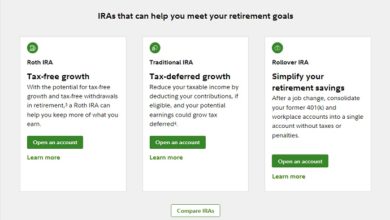
Here are the reasons why an individual should invest in education. In this article of InvestmentTotal.com, I will going to discuss the importance of education and why we should spend effort, time, money on it to gain knowledge and skills. You may heard the popular advice on investing – invest in yourself first. This means , you have to get education first. learn first, and then earn later.
Many parents send their kids on schools because they believe in education. Education is the key to success. Proper education is the key to a real successful life. Success depends on how you see it. Some people might see success like having what they want in life (e.g. luxury cars, houses, dream vacation etc.). While others think that success is as long as you are healthy and happy, you are successful.
Why Invest in Education
We should invest in education, not just because we want to learn, nor we want to have a good career someday. But we should invest in education because…
“Education is the passport to the future, for tomorrow belongs to those who prepare for it”. According to Malcom X
If you want t have a bright future, then invest in education. There are many ways to invest in education. Go to colleges or universities, or just read a book, spend some time to watch useful YouTube videos, attend seminars and workshops related to the industry ot career you want.
Another reason why we should invest in education is because “education is one thing no one can take away from you”. In investing, there are assets we are talking about, stocks, real estates, gold, and even silver. These things can be gone, or can lose. But even if you lose these all, you can get it back. How? Because you have education. You have the opportunity to bounce back again, and earn more than your previous wealth.
Know the Right College Course & Career for You
To succeed in life, one must know what he really want. Choosing the right career is the best step to succeed. Here are some things to consider when choosing the right college course and career for you;
- know what is your passion (the things you love doing)
- know the in-demand jobs and business
- the financially rewarding career
If you are passionate on what you do, you will not get tired. When you do the things you love, you will become happy in your career. If you love cars, then try to be a car agent or a mechanic. If you love talking to people and passionate about rules, laws, and government policies, and even human rights, then try to become an attorney.
Even if you graduated in college, it doesn’t mean you will become successful. Success requires skills, patience, effort, and time. Also, even if your college course related to in-demand job, suddenly maybe the job will become not in-demand. In-demand jobs such as in the category of health care, foods, and technology, are the industry that can produce more jobs in the coming years.
Since you spend money in college, you invest in college, you invest money in education (many applied for students loans), then ensure your career is financially rewarding to pay for your loans or to get the return on your investment in education.
So, what do you think? Is it profitable to invest in education? Do you think the right way to invest in education is to study and spend time and money on colleges and universities? Leave a comment below.
Credit/s: Photo by Tima Miroshnichenko from Pexels: https://www.pexels.com/photo/a-woman-wearing-a-vest-over-a-dress-shirt-holding-a-book-9572672/









DISCLAIMER: The information provided on InvestmentTotal.com is for general informational purposes only. The content on this website is not intended to be, and should not be construed as, professional financial advice.